




Own Your Own
Natural Awakenings Magazine!
Make a meaningful impact in your community by becoming the owner of a Natural Awakenings magazine. Empower others with current, valuable insights and resources to enhance their physical, mental, emotional and spiritual well-being.
As a franchise owner, you’ll inspire positive change, provide readers with tools for healthier living and connect local businesses with an audience eager for transformation.
Why Own a Natural Awakenings Magazine?

n Create a Healthier Community: Be the go-to resource for wellness and personal growth in your area.
n Boost Your Income: Take control of your financial future with a proven business model.
n Enjoy a Flexible Lifestyle: Work from home while pursuing a fulfilling, dynamic career.
n A proven business model with low startup costs.
n Comprehensive training and friendly, ongoing support.
n Flexible work schedule with many work-from-home opportunities.
n Access to a network of like-minded franchise owners.
n Financing Options Available.
Join a thriving network of passionate franchise owners reshaping the future of holistic health and wellness.
Call 239-206-2000 for a FREE evaluation of your community’s potential. Learn more or apply today at:
Corp.NaturalAwakenings.com
Add Your Community to Where Natural Awakenings Is Now Publishing:
• Atlanta, GA
• Boston, MA
• Broward County, FL
• Bucks/Montgomery Counties, PA
• Central Florida/Greater Orlando, FL
• Central New Jersey
• Charlotte, NC
• Chicago, IL
• Columbia, SC
• Dallas, TX
• Daytona/Volusia/Flagler Counties, FL
• Detroit/Wayne County, MI
• Fairfield & Southern Litchfield Counties, CT
• Gainesville/Ocala/The Villages, FL
• Grand Traverse Region/Northern Michigan
• Greater Ann Arbor, MI
• Greater Lansing, MI
• Greater Oakland, Macomb, Livingston, Genesee, MI
• Gulf Coast, Alabama/Mississippi
• Hartford/Tolland, CT - Coming soon
• Houston, TX
• Hudson County, NJ

• Lancaster/Berks, PA
• Lehigh Valley, PA
• Long Island, NY
• Milwaukee, WI
• Monmouth/Ocean Counties, NJ
• Naples/Fort Myers, FL
• New Haven, CT
• New London/Windham, CT - Coming soon
• New York City, NY
• North Central New Jersey
• North New Jersey
• Northwest Florida
• Palm Beach, FL
• Philadelphia, PA
• Phoenix, AZ
• Pittsburgh, PA
• Rhode Island
• Richmond, VA
• Sarasota, Manatee, Charlotte and DeSoto Counties, FL
• South Central Pennsylvania
• South Jersey, NJ
• Southeast North Carolina
• Space & Treasure Coast, FL
• Tampa, FL
• Tucson, AZ
• Twin Cities, MN
• Westchester/Putnam/Dutchess, NY
• Western Michigan Call for a free evaluation of your community's potential at 239-206-2000. To apply or learn more, visit Corp.NaturalAwakenings.com.
• Jacksonville/St. Augustine, FL




Join as a KnoWEwell Regenerative Whole Health member
VETTED PRACTITIONERS
Find your best-matched vetted holistic and whole health providers
WEBCASTS
700+ and Growing ive and On-Demand Expert Webcasts
EDUCATIONAL SHOWS
Curate your own library of 160+ and Growing Whole Health Expert hows
COMMUNITIES
Make meaningful connections in 200+ and growing Whole Health & Expert Communities
DISCOUNTS
Get discounts on expert healing programs and courses
readers receive a 30% discount on KnoWEwell memberships.
Join at: nowewell.com/ communi /join-individuals






Publisher Tracy Jacox-Gunter
Editor Sara Gurgen
Design, Production & Digital Marketing Kristina Parella
Contributing Writer Kristi Antley Tiana Tarver
Distribution Manager Larry Gunter Ad Design Lauren Arabis
Website Matthew Davis
MsTracy@MidlandsNA.com
Tracy Jacox-Gunter Ph: 839-228-1158
Website
ColumbiaNaturalAwakenings.com

Save a Tree Scan Me
CEO Kimberly B. Whittle
National Editor Sandra Yeyati
Editor Brooke Goode
Copy Editor/Proofing Melanie Rankin
Layout Flip180 Media
Natural Awakenings
Publishing Corporation
350 Main Street, Suite 9B
Bedminster, NJ 07921
Ph: 239-206-2000
NaturalAwakenings@KnoWEwell.com
Cover image by AdobeStock_31577056

Natural Awakenings is printed on partially recycled and fully recyclable newsprint with black soy ink.
© 2025 by Natural Awakenings. All rights reserved. Although some parts of this publication may be reproduced and reprinted, we require that prior permission be obtained in writing.
Natural Awakenings is a free publication distributed locally and is supported by our advertisers. Please call to find a location near you or if you would like copies placed at your business. We do not necessarily endorse the views expressed in the articles and advertisements, nor are we responsible for the products and services advertised. Check with a healthcare professional regarding the appropriate use of any treatment.

July’s theme is The Great Outdoors, and this is one of my favorite times of the year. I love the abundance of fresh fruits and vegetables—especially seeded watermelons and okra. Growing up, I spent summers with my grandparents, surrounded by cousins. Some of my fondest memories come from those days. We’d all light up when my grandfather pulled up in his old pickup truck, the bed full of seeded watermelons.
Times are different now. The food industry has systematically removed seeds from our food supply, and farmers are paid not to farm the land. If only more people understood the power of food that contains seeds—and the sacredness of the soil that births it. Somehow, the very things designed to give us life and sustain us have become inconvenient.
As kids, we found seeded watermelons fascinating. “Look at all of those watermelon babies!” we’d exclaim, amazed. Little did we know those seeds were destined to be watermelons themselves. We’d spit them out wherever we happened to be eating. Back then, there was no such thing as seedless. Nature has always been our best teacher—if we take the time to connect and listen.
I understand now that our Creator had a foolproof plan for our nutrition—not grocery stores, but “growcery” stores. We were meant to grow our own food and preserve it for the seasons ahead.
Here in the South, soul food is part of our heritage—but some of today’s staples, rich in fried foods, fat, sugar, salt and oil, are slowly draining our health, like a leaky faucet we keep ignoring.
What we really need is “soil food”—nourishment grown in rich, organic soil. I have a saying, “If it’s not from the earth, it is of no worth,’’ and “If it’s not from the ground, put it down.” As a grandmother, I love sharing my passion for gardening and nature with my grandchildren. It brings me so much joy knowing they can eat from Big Mama’s garden—food grown in nutrient-dense, organic soil, free of pesticides, insecticides and fungicides.
And I learn from them, too. My grandchildren show me who they were born to be. They remind me of what really matters in life. It’s not the accumulation of money, cars or houses. I’ve been to many funerals, and not once have I seen anyone buried with their material possessions. Just the clothes they wore.
So I encourage you to get outside and connect with the great outdoors—even if it’s just your porch, deck or backyard. Explore a local park or a trail. Visit a farm and pick whatever’s in season—berries, peaches, you name it. Go far a walk and listen for the wisdom nature is offering. Eat your meals on a blanket under the sky. Engage with your loved ones. Disconnect from the distractions that pull us away from presence. Reconnect with someone you’ve been neglecting—even if that someone is you.
Nature is calling. Go see what it has to say.
I love you all,

�� Follow Our New Facebook Page!







Trustus Theatre, in Columbia, will present Elton John and Tim Rice’s Aida from Thursday, July 10, through Saturday, July 26, with performances at 8 p.m. on July 10 to 13, July 17 to 20 and July 24 to 26. The musical tells the story of an enslaved Nubian princess that falls in love with Radames, an Egyptian soldier engaged to the pharaoh’s daughter. As their forbidden love blossoms, Aida is forced to weigh her heart against the responsibility that she faces as the leader of her people. Aida and Radames’ love for one another becomes a shining example of true devotion that ultimately transcends the vast cultural differences between their warring nations, heralding a time of unprecedented peace and prosperity.
Cost: $40. Location: 520 Lady St., Columbia. For more information or to purchase tickets, call 803-254-9732 or visit Trustus.org/event/elton-john-and-tim-rices-aida.

Surge Adventure Park, in Columbia, invites children with special needs to enjoy a calmer, more inclusive experience during Sensory Sunday, held on the first and third Sunday of every month from 10 a.m. to noon. During this special time, the park is closed to the general public and offers a quieter environment without loud music or flashing lights—allowing kids to play and explore at their own pace.
Cost: $7.99 per person, per hour. Location: 230 Business Park Blvd., Columbia. For more information or to purchase tickets, visit SurgeFun.com/locations/columbia/specials.
From Dust Pottery Studio, in Columbia, invites parents and kids to get creative together at a special Mommy & Me Pottery Workshop on Saturday, July 12, from 10 to 11:30 a.m. Participants will build and decorate a custom vase to cherish for a lifetime.
Cost: $60 for one adult and one child, or $80 for one adult and two children. Location: 1201 Hazelwood Rd., Columbia. For more information or to purchase tickets, call 608-332-8007 or visit FromDustPottery. com/workshops/2025/5/31/mommy-and-me-ages11-and-up-fathers-day-workshop-xpnz2.


The South Carolina State Museum (SCSM), in Columbia, is now showcasing Heroes & Villains: The Art of the Disney Costume, a blockbuster exhibition created by the Walt Disney Archives. On view through Sunday, October 26, the critically acclaimed display features more than 70 costumes from beloved characters such as Cinderella, Maleficent and others. The exhibit explores the creativity and craftsmanship behind the iconic looks that help bring Disney’s most memorable heroes and villains to life.
Location: 301 Gervais St., Columbia. For more information, including ticket prices, or to purchase tickets, visit ExperienceColumbiaSC.com/event/heroes-%26-villans%3athe-art-of-the-disney-costume/71925.

Every Thursday from 8 to 11 p.m., The Aristocrat, in Columbia, hosts a free jazz party featuring the Amos Hoffman Trio. The trio kicks off the evening with a set, followed by guest musicians that are invited to sit in for a lively jam session.
Location: 1001 Washington St., Columbia. For more information, visit ExperienceColumbiaSC. com/event/jazz-party-at-the-aristocrat/68104.

Partager Gallery and Gifts will host a watercolor painting workshop for kids ages 8 to 12 on Saturday, July 12, from 10 a.m. to noon. Taught by talented watercolor artist Shirley Durant, the class offers a fun and approachable introduction to watercolor techniques inspired by nature. All supplies are included.
Cost: $35. Location: 5910 Garners Ferry Rd., Columbia. For more information or to purchase tickets, call 803-205-4047 or visit PartagerGalleryAndGifts.com/special-events.

Top Dawg Tavern, in Columbia, is hosting its annual Family Day on Saturday, July 19, from 11 a.m. to 2 p.m. Families are invited to enjoy a lively afternoon of kid-friendly activities during lunch, including a meetand-greet with Spider-Man and Queen Elsa from Frozen—perfect for photo ops and autographs. The event will also feature a coloring contest, face painting, balloon artists and more.
Admission is free. Location: 498 Town Center Pl., Columbia. For more information, call 803454-8700 or visit ExperienceColumbiaSC. com/event/family-day-at-top-dawg-tavernin-columbia!/72655.
Midlands Women’s Day will be held on Saturday, July 26, from 10 a.m. to 4 p.m. at the Columbia Metropolitan Convention Center. This free, one-day celebration of empowerment, education and self-care brings together everything women love in one vibrant space.
Guests can enjoy complimentary chair massages, brow waxing, manicures, makeup tips and henna tattoos. The event also features chair yoga, a self-defense class, and a selfie station, along with bingo games for fun and prizes. Attendees will have the chance to connect with inspiring local businesses and shop a curated selection of unique vendors.

Location: 1101 Lincoln St., Columbia. For more information, visit Eventbrite.com/e/ midlands-womens-day-tickets-1030078391197?aff=ebdssbcitybrowse.

Envisioning Your Purpose, invites students in 8th through 12th grade to the 2025 College & Career Awareness Experience on Saturday, July 26, from 9 a.m. to 2 p.m. at Bible Way Church of Atlas Road, in Columbia. This free event is designed to help students explore college options, financial aid and dual enrollment, as well as careers in health care, engineering, business and more.
Attendees can participate in interactive activities and learn from professionals dedicated to helping them choose their path after high school.
Location: 2440 Atlas Rd., Columbia. For more information, visit EnvisioningYourPurpose.org.
Blossom Plant and Produce, in Columbia, will host its Plant and Pour Social on Thursday, July 24, from 5 to 7 p.m. Participants will learn how to keep flowers healthy during the summer heat and create a container starter to take home for their front porch.

Beverages will be available for purchase. Attendees are encouraged to dress for the weather. Parking is limited onsite, with additional paid parking across the street in the old Wells Fargo lot.
Cost: $20 individually or $35 per pair. Location: 1920 Blossom St., Columbia. For more information or to purchase tickets, call 803-888-6073 or visit ExperienceColumbiaSC.com/event/ plant-%26-pour-container-refresh/72555.

The Chapin Theatre Company presents Once Upon a Mattress, a whimsical musical twist on The Princess and the Pea, running from Saturday, July 19, through Sunday, July 27, with performances scheduled each day between 3 and 9:30 p.m. This musical comedy features a cursed king, an overbearing queen, a royal decree that no one can marry until the prince does, and an endless parade of princesses that just don’t measure up—until Winifred.
Cost: $25 to $30, with a youth rate of $20 for guests under 18. Location: 830 Columbia Ave., Chapin. For more information or to purchase tickets, call 803-404-0015 or visit ExperienceColumbiaSC.com/event/ once-upon-a-mattress/72536.

The South Carolina State Museum, in Columbia, invites families and friends to enjoy Summer Nights at the Museum, an after-hours event held on select Fridays this summer. The next event is Friday, July 18, starting at 6 p.m. Guests can explore four floors of exhibitions, including the blockbuster Heroes & Villains: The Art of the Disney Costume, featuring 70 iconic costumes worn by stars like Bette Davis, Glenn Close and Angelina Jolie.
Attendees can also watch a special film screening of Beauty and the Beast, shop in the Museum Store, and, weather permitting, visit the Observatory for evening sky viewing. Snacks will be available for purchase at The Crescent Cafe by The Food Academy and in the Museum Store.
Admission to the blockbuster exhibition requires an additional fee. Location: 301 Gervais St., Columbia. For more information, including cost, or to purchase tickets, visit SCMuseum.org/ events/summer-nights-museum.

Dust Pottery Studio, in Columbia, invites parents to drop off their kids for a hands-on pottery class on Thursday, July 24, and Monday, July 28, from 10 a.m. to noon. Participants will learn to hand-build pottery and complete two projects from options like a trinket dish, basket bowl, house vase, animal bowl, mug or decorative plate.
Cost: $40 for one child or $70 for two. Location: 1201 Hazelwood Rd., Columbia. For more information or to purchase tickets, call 608-332-8007 or visit FromDustPottery.com/workshops.

Steel Hands Brewing, in Cayce, brings back its popular Nashville Nights series this summer, featuring Nashville singer-songwriters. Hosted by Michael Haney and presented by Jim Hudson Audi, the next event takes place on Friday, July 25, at 6 p.m. This month’s performers include Lilly Winwood featuring Lauren Morrow, promising an unforgettable evening.
Admission is free. Location: 2350 Foreman St., Cayce. For more information, visit Facebook.com/events/994597549520499.

The South Carolina State Museum, in Columbia, is hosting its curator spotlight talks this summer through Friday, August 29. From 12:30 to 1 p.m., curators specializing in history, art, astronomy and natural history will give short talks and answer questions. These sessions provide a unique opportunity to explore featured objects connected to upcoming exhibitions, programs and the ongoing Reimagine the Experience campaign.
Admission is included with museum entry. Location: 301 Gervais St., Columbia. For more information, call 803-898-4921 or visit ExperienceColumbiaSC.com/event/ curator-spotlight-talks/72559.
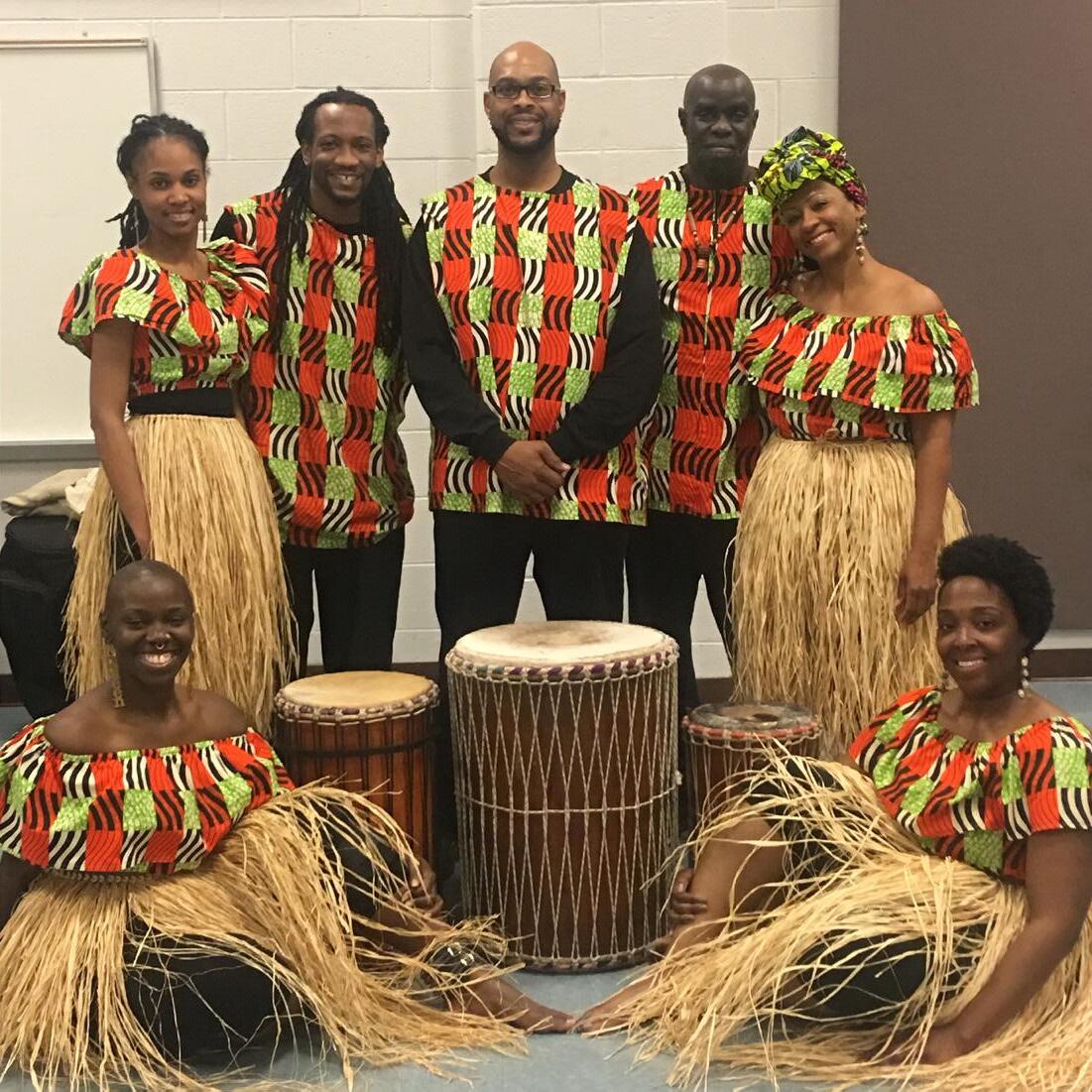
The Freedom Farm Festival Fundraiser will take place on Saturday, July 19, at Uhuru Farms, in Hopkins, with two waves: 10 a.m. to 1 p.m. and 2 to 5 p.m. Hosted by UASC International Learning Center’s Uhuru Farms Sustainability Institute and G.R.A.I.N.N. Culinary & Farming School, the festival offers a powerful day of culture, connection and celebration—where the soil tells stories and every seed sown is a step toward sovereignty. Rooted in legacy, grown in liberation, the event honors the past while cultivating the future.
Inspired by the visionary Freedom Farm Cooperative of Fannie Lou Hamer and the resilience of Victory Gardens from the World Wars, the festival highlights Afro-Indigenous and Gullah Geechee traditions through music, dance and hands-on learning. Attendees can experience African singing, sweetgrass weaving, drumming and
dance performances; embark on a foraging hike to discover local edible and medicinal plants; learn the ancient art of archery; and enjoy a pick-your-own-salad adventure.
More than a festival, this gathering is a movement. Freedom is a way of life—growing food, reclaiming the relationship with the land, and sharing the surplus so communities can thrive. It is fortifying body, mind and spirit with nature as the source. Freedom also means connecting local farmers with their communities to build collective resilience and interdependence.

Whether attendees come to connect, learn or simply celebrate, all are welcome to gather, ground and grow together at the Freedom Farm Festival on the sacred grounds of Uhuru Farms.
For more information or to register (required), visit uascInternational.org.



















Genetic inheritance plays a crucial role in transmitting health-related information from parents to offspring. While lifestyle and environmental factors are known to impact sperm quality and influence the biological information passed on, the underlying mechanisms remain unclear. Animal studies have suggested that small, non-coding ribonucleic acid (sncRNA) regulates the activation and deactivation of genes in the sperm genetic material.
A study published in the journal Nature investigated the effects of a short-term dietary change on sperm quality. Eight men were provided with olive oil, vitamin D and omega-3 fatty acids as part of their diet for six weeks, while a control group of nine men maintained their standard diets. The researchers observed that the dietary intervention altered multiple sncRNA signals carried by the sperm, particularly those related to fatty acid metabolism and gene expression. These findings contribute to the growing evidence suggesting that paternal health and nutrition during conception may play a role in the developing embryo and possibly the long-term health of the child.

A study by Israeli researchers published in the journal Nature reported that cellular structures known as proteasomes not only facilitate the breakdown of damaged proteins, but also generate small protein fragments, collectively referred to as peptides, that attack bacterial infections. Using lab experiments and computer modeling, the scientists identified hundreds of thousands of potential antimicrobial peptides from normal proteasome activity.
The study demonstrated the enhanced ability of proteasomes to produce protective peptides when confronted with a bacterial infection. To test this, scientists inhibited proteasome production in one group of human cells and left another group unaltered. Both groups were then exposed to salmonella. The infection thrived within the cells lacking proteasomes but was eradicated in the control group. This discovery could lead to the development of improved antibiotics and other infection-fighting therapies.
According to a paper published in the Journal of Medical Entomology, scientists found ticks carrying babesiosis disease in several Mid-Atlantic states. The rare, parasitic infection lives in the blood of rodents such as shrews, chipmunks and mice, and can be contracted by humans through tick bites. According to the U.S. Centers for Disease Control and Prevention, babesiosis can attack red blood cells and cause flu-like symptoms, including fever, chills, body aches, nausea and fatigue.
Historically, the disease has been reported in the Upper Midwest and Northeast regions of the United States. In this study, researchers collected more than 1,300 black-legged ticks from Virginia, Maryland and Delaware and discovered that 2.7 percent of the ticks carried the babesiosis parasite. Although the incidence rate is relatively low, these findings underscore the importance of healthcare providers in these states to be vigilant for the disease and provide appropriate treatment to affected individuals.


According to a report from the American Lung Association (ALA), approximately 156 million Americans, or 46 percent of the population, lived in areas with unhealthy air quality from 2021 to 2023, the period of analysis in the most recent report. This represents a higher number of individuals than at any time in the preceding decade. Bakersfield-Delano, California, was the region most affected by pollution.
The report suggests that the United States is experiencing a decline in clean air measures. Record-breaking heat, drought and wildfire smoke caused by climate change are damaging air quality throughout the country. The ALA’s analysis is based on official air quality monitoring sites maintained by federal, state and tribal governments.
An unrelated 2023 report from Stanford University, published in the journal Nature, estimated that wildfire smoke has undone about a quarter of the progress achieved under the Clean Air Act of 1963.

It is estimated that the human eye can see almost 10 million different colors. In a paper published in Science Advances, scientists described a precise laser setup that stimulated the retinas of five participants, three of which were co-authors of the paper, to perceive colors beyond the normal human visual range.
The procedure, called “Oz”, involved delivering minute doses of light to the cone cells in the eye responsible for detecting the color green. Each participant observed a saturated bluish-green color resembling teal, which the researchers named “olo”. The participants confirmed that olo was beyond the standard visual range by comparing it with a teal-colored laser and adjusting the saturation by subtracting white light.

An international team of scientists aboard a Schmidt Ocean Institute research vessel embarked on a 55-day expedition to explore cracks in the ocean floor along the Chilean coast. The cracks release methane gas bubbles into the ocean, feeding microbes that support a diverse array of life forms.
The team used remotely operated, unmanned underwater vehicles to dive up to 9,800 feet below sea level, allowing them to map the methane seeps, as well as four previously unexplored underwater canyons. The deep-sea ecosystems they discovered differed from site to site. At least 60 new species were identified.
Notable observations included red cusk-eels, a highly valued fish in Chile; large Humboldt squid; a bioluminescent anglerfish; and chemosynthetic clam beds that are able to survive without sunlight.

Upcycling—the process of giving discarded or worn items new life—offers a sustainable alternative to wasteful consumption. By transforming ordinary objects into artistic creations, we can express our individuality and contribute to a more environmentally conscious society. The garden presents an ideal platform for upcycling because it allows us to repurpose obsolete items at low cost.
Whether we turn a rusty wheelbarrow into a flowerbed, salvage a thrift store teapot to use as a planter or rescue a well-worn table to become an outdoor potting station, our creativity can transform any outdoor space. Reviving haggard chairs and benches with vibrant colors or intricate designs elevates garden seating to new heights. Filling a retired bathtub or sink with plants, repurposing an unused clothing rack for hanging plants or turning a secondhand bookcase into a vertical garden are fun and surprising projects.
• For a touch of functional whimsy, fill chipped teacups with birdseed and hang them on tree branches.
• Paint and decorate discarded tires, then fill them with plants.
• Use shutters and doors as garden dividers.
• Lean an old wooden or metal ladder against a tree and place potted plants on the rungs, or use it as a trellis against a garden wall.
• Position an old bike to support climbing clematis, roses, ivy or morning glories.
• Use scraps of wood, bricks or pallets to create a rustic walkway.
• Turn metal or enamel colanders into hanging planters with built-in drainage.
• Use a weatherproofed baby carriage or


doll stroller to showcase potted flowers on a porch, under a tree or at the edge of a garden.
• Turn old stainless-steel cutlery or wooden kitchen utensils into wind chimes or mobiles.
• Place tea lights in empty jam jars to light garden paths.
• Nestle a plant in a broken terracotta pot for a rustic, bohemian vibe.
• Use buckets as hanging planters for herbs, ferns or flowers.
• Fill old rubber boots with soil to make quirky planters and place them around the mailbox or front door.
• Reinforce any loose parts to ensure that furniture, ladders and other objects can hold the weight of plants.
• Drill holes in items used as planters to provide proper drainage.
• Weatherproof wooden and wicker items with exterior latex paint, stain or sealants. Consider eco-friendly options such as versatile milk paint in earthy or vibrant hues. Remember to protect metal décor with an anti-rust coating or paint.
by Marlaina Donato
Summer presents a timely invitation to sip from a full cup, set aside todo lists and sink our toes into all that shimmers. Somewhere between keeping the kids entertained and weeding the flower beds is an opportunity to tend to our abandoned joys. It can be as simple as noticing the tinkling of ice cubes in a glass or planning an enchanted picnic at sunset with colorful cloths draped beneath a tree.
Summer comes but once a year, and as our backyard blooms in vibrant hues, so should we. Buying new, sultry spices for the cupboard, scenting the bed sheets with stress-reducing ylang ylang essential oil, placing fresh flowers into a tea pot instead of
a traditional vase or walking barefoot after a storm tells the nervous system that there is more to life than the chores. Inspiration is an unpredictable muse; waiting for her to notice us in our busy lives is most often futile. Combating the monotony of routine in small, daily gestures is easy and lights up our senses.
Relinquishing the common tendency to feel self-conscious is key. “Be brave enough to live life creatively,” says actor Alan Alda. Such courage may require that we break our own rules. If you usually prefer venturing out with company, make a point of going out solo for a backroad drive with no destination and a good playlist. If you haven’t drawn since childhood, buy some colorful
pens and doodle in a sketchbook. Host a fancy herbal tea party and invite a neighbor you’ve never spent time with.
Wear a breezy scarf and flowers in your hair, even if you’re just running errands. Ask someone you’ve long admired to go out on a date and attend a local free concert under the stars. Everyone that is accustomed to seeing you living life a little more low-key will get over it. Having a wild love affair with summer is good for the soul and might even change your life.
Marlaina Donato is an author, painter and composer. Connect at WildflowersAndWoodSmoke.com.

by Marlaina Donato
According to the U.S. Department of Agriculture, approximately 85 percent of Americans aged 20 and older consume breakfast daily, with eggs being a common component. Eating protein during the first meal of the day can help us feel full longer, balance blood sugar levels and potentially alleviate chronic anxiety. In addition to complex carbohydrates, fiber and heathy fats, the Mayo Clinic recommends that a nutritious breakfast always include lean protein.
“Protein is the master synthesizer, essential in its role in muscle building, immune function and energy balance,” says Melissa Halas, a registered dietitian nutritionist and certified diabetes educator in California. “Including protein early in the day helps prevent the common energy dip mid-morning and keeps satiety levels high, supporting healthy metabolism and preventing overeating later.” Protein requirements increase during periods of stress, recovery from injury or surgery, pregnancy or breastfeeding, and life
stages such as childhood, adolescence and the golden years.
Typical sweet cereals favored by kids often contain a high sugar content of 12 grams per cup, which is half of the daily recommended added sugar allowance for young children, as outlined by the American Academy of Pediatrics. Replacing low-nutrient, high-carbohydrate choices like white-flour pancakes and sugary cereal with delicious, plant-based scrambles, naturally sweet or savory breakfast bowls and delectable fruit parfaits can be both simple and satisfying.
Even if our breakfast choices are already healthier, a little extra fortification can do the body good. “Many common breakfasts like oatmeal and avocado toast don’t have enough protein, so it’s a good idea to be diligent about meeting your protein needs at breakfast. It’ll set you up for better energy, focus and satisfaction throughout
the morning, plus better metabolism. The key is combining protein with fiber and healthy fats to keep you full and fueled until lunchtime,” says New York City-based Samantha Cassetty, a registered dietitian nutritionist, author of Sugar Shock and founder of Sam’s Plate, an online nutrition and wellness source.
Whether we incorporate a tablespoon of unsweetened organic almond or peanut butter into oatmeal or layer smoked salmon and cream cheese on multigrain toast, an added source of protein can provide a boost of energy and vitality.
As a single mom, Cassetty understands the challenges of transitioning kids away from sugary foods and highly processed ingredients. She suggests making smart substitutions, such as serving whole-grain frozen waffles topped with berries and protein-rich Greek yogurt or breakfast nachos with whole-grain tortilla chips instead of breakfast tacos in highly processed taco shells. For a fun breakfast parfait, she heats frozen berries until they release their juices and then mixes the warmed fruit with plain Greek or plant-based yogurt. To enhance the texture and nutritional value, she adds a spoonful of chunky nut butter, a sprinkle of nutritious seeds or low-sugar granola.
An extra-hearty breakfast can be as simple as adding a scoop of whey or plant-based protein powder into a whole-grain waffle mix or blending grass-fed gelatin powder into a


smoothie. Protein-rich tofu, which is virtually tasteless when unseasoned, not only absorbs any flavors added to it, but also transforms into a luscious pudding when blended with a dash of plant-based milk, cinnamon and dates.
For Halas, tofu scrambled in a pan as an egg substitute and served on a whole-grain tortilla with turmeric and vegetables offers a well-balanced combination of protein and carbohydrates. She also recommends multipurpose cottage cheese, a favorite of generations past, for breakfast bowls mixed with berries, flaxseeds and walnuts, or spread onto toast with avocado. Full- or reduced-fat ricotta can provide a healthy alternative, as well.
Nutrient-dense pseudo-grains like quinoa and amaranth offer versatility. “Quinoa is traditionally eaten for breakfast in countries such as Peru as a warm porridge known as pesque,” explains Halas. “You can cook quinoa or amaranth in cow or plant

milk and top it with fruit, seeds and cinnamon for a warm cereal bowl particularly well-suited for vegetarian, gluten-free and anti-inflammatory diets, making it an excellent alternative to conventional grains at breakfast.”
Cassetty offers a savory variation, saying, “You can use quinoa to make a breakfast grain bowl with sautéed spinach, eggs and a seasoning like pesto.” She also encourages using dinner leftovers for morning nourishment.
Most of all, breakfast should feel doable. “I recommend making breakfast nourishing, satisfying and practical—something you can prep ahead of time or whip up fast,” advises Halas.
Marlaina Donato is an author and artist. Connect at WildflowersAndWoodSmoke.com.




YIELD: 2 SERVINGS
1 Tbsp olive oil
1 Tbsp ghee, butter or vegan butter, unsalted
1 block firm tofu
¼ tsp smoked paprika
1 dash turmeric powder
Smoked salt to taste
2 Tbsp fresh salsa
2 Tbsp fresh guacamole
Drain water from tofu and pat dry, then crumble it by hand or smash it with a fork or potato masher.
Warm the olive oil and ghee or butter in a pan over high heat until melted. Add the crumbled tofu to the pan, moving it quickly from side to side with a spatula for about 2 minutes until it resembles the consistency of scrambled eggs.
Reduce the heat to medium and add smoked paprika and turmeric. Stir until spices are well distributed and the color is even throughout the scramble.
Serve immediately with a sprinkle of smoked salt. Add fresh salsa and guacamole, if desired, on the side or spooned over the scramble.
Recipe courtesy of Marlaina Donato.

YIELD: 1 SERVING
½ cup plain Greek yogurt (low-fat or fat-free)
½ cup papaya, diced ½ cup low-sugar granola
1 tsp honey
Add ¼ cup of yogurt to the bottom of a 12- or 16-ounce glass. Add most of the diced papaya and granola and a drizzle of honey to the glass. Layer on the remainder of the yogurt. Top with the remaining papaya, granola and honey.
Recipe courtesy of Melissa Halas, MA, RDN, CDE.








by Carrie Jackson
While many of us dream of epic journeys to faraway places, humbler excursions can also provide unforgettable memories and experiences. British adventurer and bestselling author Alastair Humphreys coined the term “microadventure” to describe a brief and inexpensive outdoor jaunt close to home. From a weekend getaway on a nearby hiking trail to an afternoon visit at a local park, microadventures offer flexible scheduling, budget-friendly options, health benefits and a deeper connection to Mother Earth.
“I think that microadventures are popular right now because we are short on time, and money is tight for many people,” says
Humphreys, a National Geographic Adventurer of the Year. “We are ridiculously busy in our daily lives, but we are also craving the physical and mental respite of time in nature—fresh air, exercise and time away from our cursed phones. It’s great to have the adventure of a lifetime, but until that lucky opportunity comes around, why not try to have a lifetime filled with tiny little experiences squeezed around the margins of busy daily life?”
Humphreys has traveled the globe experiencing extraordinary adventures such as rowing across the Atlantic Ocean, walking the length of the holy Kaveri River in India

and traversing Iceland by foot and packraft. More recently, he dedicated a year to enjoying adventures in his own neighborhood, as recounted in his book Microadventures: Local Discoveries for Great Escapes
“I focused on the single, small local map centered around my home, covering about five miles in each direction from my front door,” explains Humphreys. “At first, I worried that this would be too small, too boring or too claustrophobic. But I realized that once I slowed down, paid attention and had an adventurous mindset every day, I started to discover new places close to home I’d never seen before—new streets, new parks, new patches of woodland, new places to run. I found fragments of wild places where I could sit with a cup of coffee, all within sight of the skyscrapers of the biggest city in my country.”
Humphreys encourages others to embark on a similar year of localized exploration, reminding them to establish realistic goals and remain open to novel experiences. He also suggests aligning activities with the seasons to harmoniously celebrate the natural order. Visit the same spot during each equinox and solstice, for example, to appreciate the way the landscape changes over the course of a year. A mountain view or shoreline feels and looks different in spring, summer, autumn and winter.
“Declare your intention and outline your plans,” Humphreys recommends. “Sleep
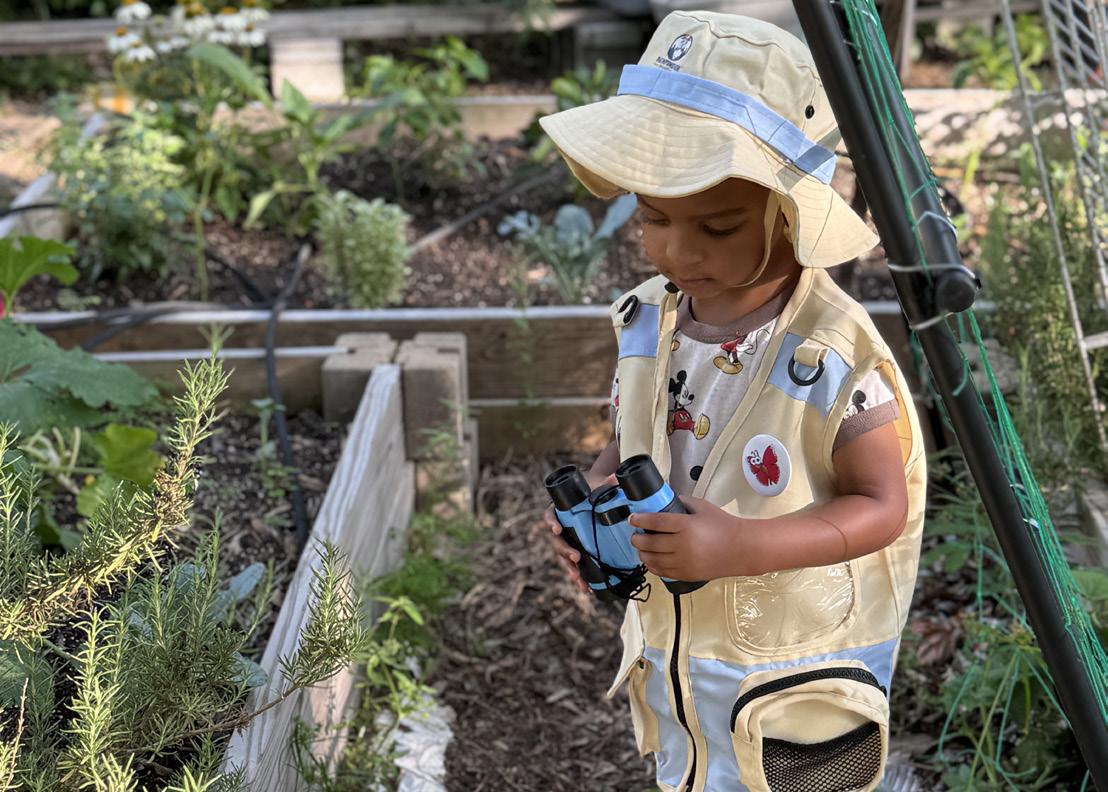
outside one night. See a sunrise blaze across the sky for a romantic Valentine’s Day. Celebrate blue moons and other celestial events.” Natural splendor is all around us.
Kameron Stanton is the chief operating officer and event manager for Black People Outside, a Chicago-based organization founded during the pandemic to encourage people of color to get outside and explore. A weekend trip with his partner, Chevon Linear, to the Grand Teton National Park during lockdown was a memorable experience. “Seeing the stars so clearly at night unlocked something in us,” Stanton recalls. “We regained a respect for Mother Nature and what the beauty of the outdoors could do for your psyche.”
A microadventure in nature presents Stanton with unique survival challenges. “In the city, everything is zooming past you so quickly. When you are outside in the wilderness, you are often alone with your thoughts and have to fend for yourself in a different way,” he explains. “If you don’t build a fire, you’re going to be cold. If you don’t have the right equipment, you could get in trouble. There are little things the outdoors can teach you in a controlled manner. You learn

lessons in planning and structuring your day, while still having fun and discovering new things about yourself and the world you’re in.”
“Activities like hiking help build strength, endurance, respiratory health, weight loss and so many other physical elements,” Stanton asserts. “Most people you meet who regularly spend time outdoors tend not to be angry and upset. They’re looking at the brighter side of things because they are literally around brighter things. Nature feeds you and helps you feel grounded with your thoughts and feelings.”
Microadventures can also be opportunities for social engagement. Stanton suggests joining a local club related to an interest such as fishing, running or birdwatching. “Once you start having microadventures, you’ll connect with like-minded people, and you never know where that may lead you,” he says.
There are myriad ways to enjoy a microadventure in almost any environment, including hiking, kayaking, biking, skiing, climbing, rollerblading and fishing. “Forest preserves and state and national parks offer incomparable views and trails year-round. They tend to have a


Sanctuary for the Feminine Soul
Peaceful Pause is a Holistic Healing Space Where Every Woman Can Heal, Grow and Thrive


low admission price, and most are accessible as long as you have a vehicle,” says Stanton, noting that a lazy afternoon fishing or tubing down a river may be just a short drive away.
Day hiking has become a popular pastime, in part because it combines many of the advantages of microadventures. “It offers a perfect opportunity to break away from the routine, explore nature and enjoy the mental and physical benefits of being outdoors,” says Jacqueline Kehoe, a journalist and expert advisor for Recreational Equipment, Inc. (REI), which provides a wide range of equipment, apparel, workshops and other resources for adventure seekers. Similar gear retailers include Backcountry and Sierra Trading Post.
“Whether you’re planning a short stroll through a local park or a longer trek up a nearby mountain, you always want to be prepared,” Kehoe advises. “Packing the right gear will help you make the most of your time on the trail, whether you’re a seasoned hiker or just starting out.” For most microadventures, a small hiking pack should suffice for carrying the necessary gear.
What to bring depends on multiple factors, including trail conditions, weather, the hike’s difficulty and the duration, which can range from a couple of hours to an entire day. Kehoe recommends bringing ample food and water to stay energized and hydrated, even on shorter hikes. A good starting point is one liter of water per person per hour, but this amount should be adjusted based on individual needs and the intensity of the hike. “Once your hike is longer than a few hours or goes into unfamiliar or backcountry terrain, the essential gear list grows,” Kehoe counsels.
Weather-appropriate clothing can make or break an adventure. “Dressing in moisture-wicking layers can help you stay comfortable.
The weather may change quickly, so it’s important to be prepared for various conditions. Choose sturdy, comfortable shoes that provide good support and traction. Proper footwear can prevent injuries and make your hike more enjoyable,” says Kehoe.
Safety should always be the top priority. “If you’re going somewhere that is unfamiliar, having the right tools can help you stay on course and find your way back if you get lost. Whether it is a smartphone app or map and compass, orient yourself with your tools and your surroundings before heading off on the trail,” Kehoe suggests. “A basic first-aid kit is useful for treating minor injuries. Include items like bandages, antiseptic wipes and any personal medications. A knife or multitool can be handy for various tasks, from cutting food to making repairs.”
With a little creativity and planning, microadventures can become a joyful addition to an active lifestyle. Humphreys encourages people to step outside, even for short periods of time, asking, “What can you do in the evenings to relax rather than watching Netflix? Can you find a little patch of nature or even a tree to sit beneath when you eat your lunch? Maybe your kids would like to eat breakfast in the park this weekend rather than in front of the TV. Learn to identify a new bird. Forage for your own food. Sleep under a full moon. Share a microadventure with a child to create lifelong memories.”
Carrie Jackson is a Chicago-based freelance writer and frequent contributor to Natural Awakenings. Connect at CarrieJacksonWrites.com.
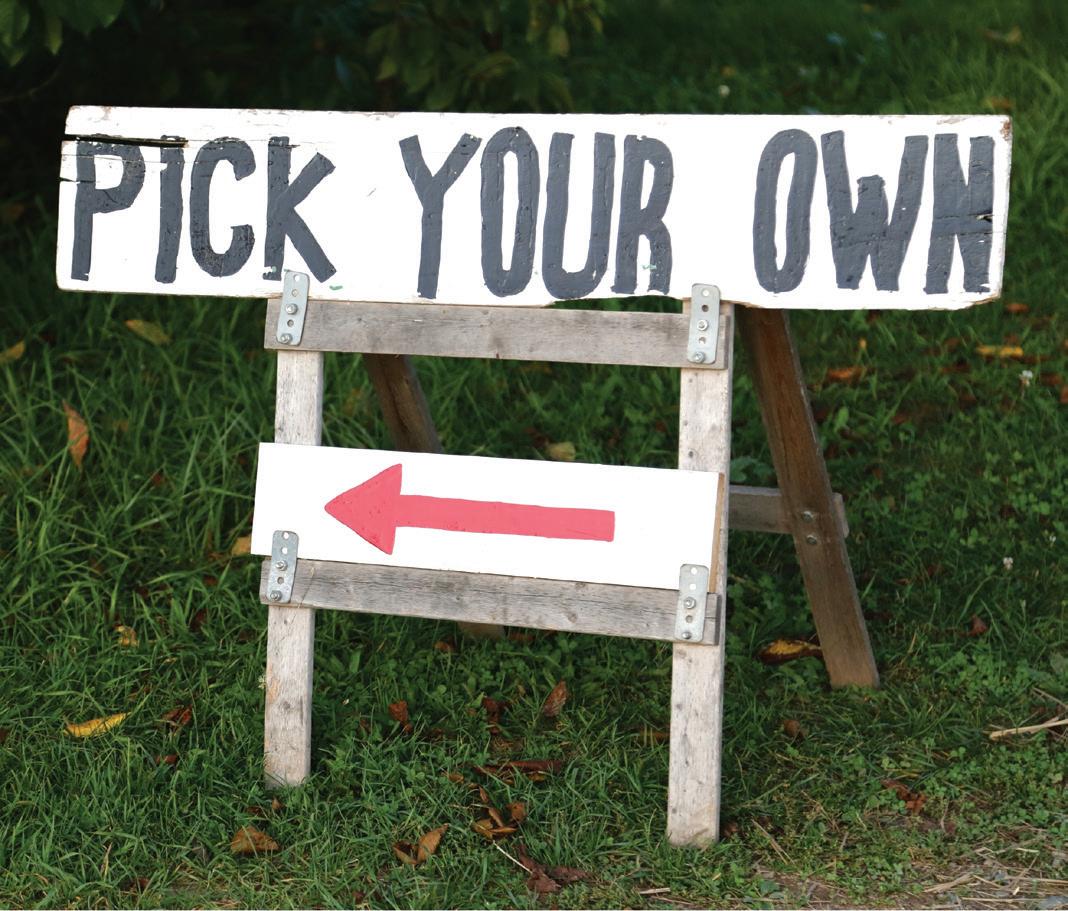





by Maya Whitman

The world’s agriculture is largely reliant on the cultivation of single crops upon sizable tracts of land for staples like wheat, corn, soybeans and rice. Known as monoculture, this approach offers efficiency and low-cost produce, but it also carries significant ecological consequences, including the depletion of soil nutrients, ground pollution, increased carbon emissions, water scarcity, crop failures and the loss of pollinators due to degraded ecosystems.
One promising sustainable alternative is the development of decentralized food forests in
small, local settings like rural backyards, urban parks, roadsides and vacant lots. Based on agroforestry—the practice of integrating trees and shrubs with diverse crops—food forests simulate the verticality of a forest while creating highly diverse ecosystems comprised of tiers of edible plants.
According to Science Mill, a Texas-based nonprofit that promotes scientific exploration and education, the ideal food forest is comprised of multiple layers, including a canopy of large fruit and nut trees, an understory of dwarf fruit trees, shrubs
such as blueberries or currants, perennials and herbaceous plants, ground cover plants like creeping thyme, root crops and climbing vines.
These regenerative, edible landscapes replenish themselves, eliminating the need for annual replanting. Harmonious crops work as a symphonic whole, naturally repelling pests and fortifying the soil. The resulting benefits include water conservation, carbon sequestration, biodiversity, thriving pollinator populations, bolstered local economies and a reduction of food transportation costs.
“By creating a regenerative edible garden in whatever space you have available, you are creating habitats and food for the preservation of nature that allows all life—wild and tamed, present and future—to thrive. No plot of land is too small to start a magic garden,” says Maria Rodale, a master gardener and board member of Rodale Institute, as well as the author of several books, including Organic Manifesto. “For me, it’s not regenerative unless it’s organic, and it’s especially regenerative if we are gardening with and for nature, rather than just for ourselves.”
The first step in planning an edible paradise is consulting a resource such as the U.S. Department of Agriculture Plant Hardiness Zone Map (PlantHardiness.ars.usda.gov) to determine which plants thrive in the local climate zone. Choosing native, food-bearing plants and using organic mulch year-round will enhance the garden’s resilience against extreme weather conditions, and annual rotation of plant families will help prevent disease. In urban or small areas, vertical gardening, which is most easily achieved by adding trellises to raised beds, will maximize the available space for additional plants.
“It’s absolutely not necessary to own a lot of land to create a food forest,” says Rodale, noting that edibles can be grown in pots on windowsills, in the front or back yard, and
even on rooftops. She recommends planting an understory of edible berries, as well as herbs and vegetable crops at the ground level. Root vegetables such as purple sweet potatoes “make a beautiful ground cover, and the leaves are even more delicious than spinach. Other roots like horseradish make beautiful and productive landscape plants,” she explains.
According to New Jersey horticulturist and certified arborist Melinda Myers, “Containers are great options for everyone. You can increase growing space and keep the plants handy for easy planting, care and harvesting. I like to invite my guests to pick their own salad ingredients, herbs for seasoning or fresh tomatoes for snacking from containers on my patio.”
Myers, an instructor in The Great Courses series How to Grow Anything and the author of several gardening books, incorporates edible plants with flowers in her garden beds and containers. “‘Bright Lights’ Swiss chard has colorful stems and makes a nice vertical accent in containers. It combines nicely with pansies and colorful lettuce in the spring and fall,” she says. “I love to grow asparagus at the back of my perennial gardens. I harvest the spears in spring, and once the greenery appears to replenish the plant’s energy, I have a nice, ferny backdrop for the flowers.”
Sharing a garden surplus with neighbors, senior centers and other organizations that need nutritious produce can have a far-reaching positive impact. Collaborating with fellow gardeners to swap helpful hacks or share garden chores can also be a blessing. “People are so busy these days that working with others provides lots of benefits,” says Myers, praising the round-robin approach “where you help each other tend your gardens, share food and drink and have some time to socialize.”
Creating a food forest aims to foster a thriving ecosystem and a sense of community

that extends to nature. “Let the weeds be part of your garden,” exclaims Rodale. “Many common weeds are habitats for the bugs that feed birds and are edible and medicinal. I noticed that groundhogs and rabbits preferred the weeds to my vegetables when I stopped weeding so heavily.”
Maya Whitman is a regular contributor to Natural Awakenings.



by Carrie Jackson
Cycling is more about the journey than the destination. Bikes are constantly evolving, offering more streamlined rides to engage cyclists of all ability levels. Recent trends include the rise of gravel bikes and electric bikes, advancements in tubeless tires and the increasing integration of technology. For riders that want to explore challenging terrain or upgrade their daily commute, there are numerous options for safer and more connected bikes that offer an enjoyable experience.
Multi-surface gravel bikes are built to explore unpaved roads, striking a balance between the lightweight feel of road bikes and

the off-road capability of mountain bikes. Gretchen Brauer, general manager of Wheel & Sprocket, a cycling outfitter in Evanston, Illinois, attributes the growing popularity of gravel bikes to their enhanced versatility, increased safety and superior comfort on rough terrain.
“Gravel bikes can be ridden almost anywhere—on and off-road,” she explains. “The key features are slacker geometries, a longer wheelbase and higher stack heights, which increase the comfort factor and provide better visibility. Wider road tires enable riders to navigate over all sorts of surfaces.”
Andrew Dutton, director of brand marketing at Trek Bicycle, asserts that gravel bikes open a world of adventure that is tough to find on congested roads. “Gravel bikes give riders the freedom to discover scenic, low-traffic routes with more confidence, comfort and fun,” he says. Design innovations have made it easier than ever to venture further and discover more. “Modern gravel bikes feature increased clearance for wider tires that offer better grip, more stability and more speed,” Dutton points out. “Integrated storage on models like Trek’s Checkpoint make gravel bikes perfect for everything from one-day races to multi-day escapes.”
Electric bicycles employ an electrified drive system that augments the rider’s
pedaling power. The motor and battery assist in propulsion. Most e-bikes are equipped with a remote or controller to enable adjustments to the power output. The latest generation features integrated, removable batteries and varied mid-drives that position the motor at the center of the bike frame, making them user-friendly, practical and enjoyable to ride.
In recent years, e-bikes have soared in popularity, in part because they accommodate riders of all ages and fitness levels. “E-bikes allow people to ride farther distances and arrive at their destinations more quickly and less sweaty,” Brauer attests. “Some people maybe wouldn’t be able to ride without the assistance of the motors. With the options of cargo e-bikes, lots of people are able to replace their cars.”

Tubeless tire systems have gained increasing traction for a compelling reason. Frequently found on mid-range to high-end mountain bikes, as well as on gravel and road bikes, they offer improved ride quality and tire construction. “Tubeless tires do not require the use of an inner tube,” Brauer remarks. “Instead, a few ounces of sealant are put into the tire. Small punctures become instantly sealed, and the ride can continue. When riding, there are a few benefits that include decreased rolling resistance and a lower tire pressure that reduces the risk of a pinch flat.”
Brauer also notes that most bikes are now equipped with wider tires, which contribute
to a more comfortable ride without compromising on speed. Disc brakes, which stop the bike by squeezing a brake pad against a rotor mounted around the hub, have become standard on nearly all categories of bikes, providing superior stopping performance in all sorts of conditions.
To enhance the riding experience and foster connections among cyclists, riders are actively seeking innovative solutions.
“Technology is linking one rider to another, allowing for near constant communication among cyclists who are not actually riding together,” says Brauer. “A handful of applications track your rides. After the ride is completed, these apps allow riders to compare and compete for digital awards. You can see where and how fast your friends rode and get ideas for routes. It brings a sense of community to groups of people who wouldn’t otherwise be able to connect.”
Dutton notes that technology is making cycling safer. “Recent innovations are helping more people feel confident on the bike




and excited to ride,” he shares. “Daytime running lights use a specific flash, focus and range to help riders stand out to drivers more than a mile away, even in broad daylight. Rear-facing radar helps riders stay aware of approaching traffic while making them more visible to others on the road. Digital bells with Bluetooth speakers and advanced sound engineering help riders be heard, not just seen, even in congested areas. Together, these technologies help create a safer, more connected and more confident riding experience wherever the road (or trail) leads.”
Carrie Jackson is a Chicago-based freelance writer. Connect at CarrieJacksonWrites.com.
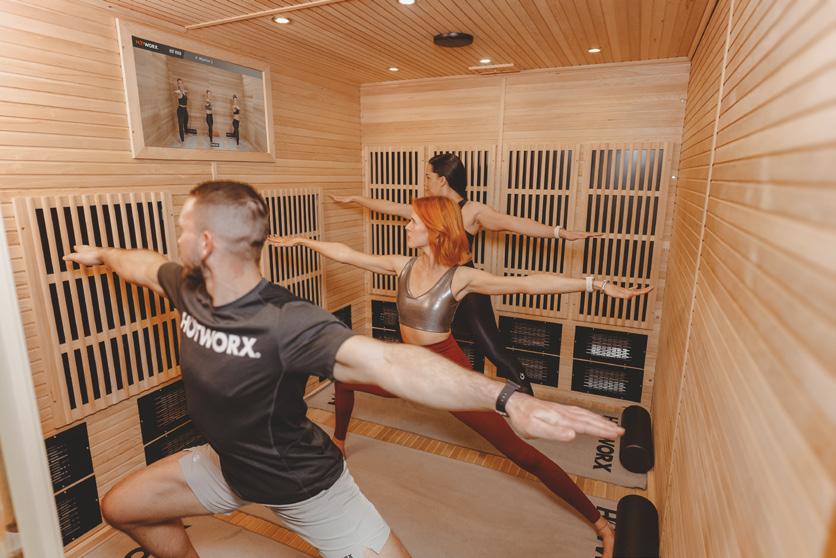







by Megy Karydes
As summer’s longer days encourage outdoor activities, we face heightened exposure to solar radiation and other environmental irritants. Skin protection becomes a priority, and conventional options often employ synthetic ingredients that can irritate sensitive skin and cause adverse environmental effects. Natural alternatives offer a gentler and more sustainable approach to maintaining healthy and resilient skin all season long.
Summer protection extends beyond aesthetic and physiological considerations. According to the American Academy of Dermatology, individuals of all ages are susceptible to skin cancer, with about one in five Americans developing the condition during their lifetime. Because
solar radiation can cause burns, skin cancer and premature aging, avoiding the most intense rays between 10 a.m. and 2 p.m., seeking shade, applying sunscreen and wearing wide-brimmed hats and sun-protective clothing are some of the easiest safeguards.
During the summer months, the skin takes a beating from heat, sweat, sun exposure and frequent washing, so using products that both soothe and restore balance is important. Natural ingredients, including oatmeal, honey and lavender, offer gentle yet powerful options for protecting and soothing skin.
Oatmeal locks in moisture, eases inflammation and soothes irritation caused by sun

exposure or sweat, according to the Cleveland Clinic. When finely ground into what is known as colloidal oatmeal, its efficacy is amplified, forming a protective barrier that hydrates and calms sensitive skin. Its popularity in creams, lotions and sunburn treatments stems from inherent anti-inflammatory and moisturizing properties.
Honey serves as a natural humectant that draws moisture into the skin. Recent research published in Pharmaceuticals indicates that products with higher concentrations of the sweet nectar provide improved skin hydration and reduced wrinkle depth. Floral honey, rich in natural sugars, is more effective at boosting moisture than forest honey. Even with different variants or quantities, honey-infused products feel luxurious and gentle on the skin.
Rachel Sloan, a Chicago-based beekeeper and founder of Nature’s Trace Company, frequently incorporates ingredients from her garden and hives into small-batch, nature-inspired soaps designed for gentle cleansing and nourishment. She uses both raw honey and finely ground oatmeal in many of her soaps.
Renowned for its anti-inflammatory properties, lavender essential oil is another popular ingredient. When diluted in a carrier oil, it may be effective in soothing minor burns due to its pain relieving and antimicrobial qualities. Julie Williams, a medical herbalist and founder of Leaf People, based in the Colorado Rockies, is drawn to lavender essential oil’s healing properties. It is a key ingredient in some of her products that offer fast, natural relief from sun-exposed skin.
According to both Williams and Sloan, when it comes to summer skin care, most people focus on protection—sunscreen, hats and long sleeves—but what often gets overlooked is replenishment. Even with the best preventative measures, exposure to sunlight
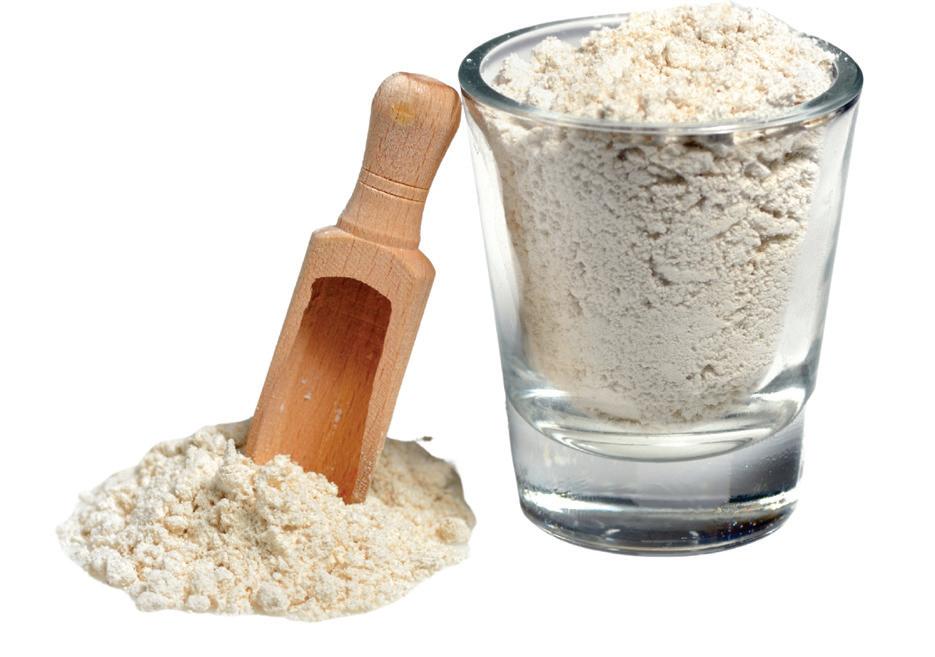
can leave the skin depleted and vulnerable due to heat, ultraviolet rays and environmental stressors. It is essential to thoroughly rinse off not only sweat and sunscreen, but also the toxins released by the body through heat and exertion.
“Following that cleanse, replenishing the skin with antioxidant-rich ingredients like vitamin E, vitamin C, green tea, ginkgo biloba or gotu kola helps restore what’s been lost and supports cellular recovery,” says Williams. “For those in persistently hot climates, cooling botanicals like rose, burdock root, cucumber and chamomile can soothe mild irritation and bring down surface heat. Incorporating these into your evening routine allows your skin to rest, regenerate and recover while you sleep.”
Taking care of our skin does not have to involve a complicated daily routine. “A lot of people stress out because they’re not sure if they’re using the right product or doing the right things; half the recommendations on social media conflict with each other,” says Williams. Instead of dwelling on product choices, she suggests that people find what works best for their skin and incorporate it into their daily routine, so that it becomes a constant, like other regular self-care activities.
“If you want to keep it simple in the summer, find one solid, hardworking bar that does it all: shampoo, body wash and

exfoliant,” says Sloan. “Your summer skin protection routine should be focused on feeling clean, refreshed and nourished, without the fuss.”
Megy Karydes is a Chicago-based writer and author of 50 Ways to More Calm, Less Stress.


by Christina Connors
Children are naturally curious. They ask questions, dig in dirt and chase butterflies—not because they have to, but because they are wired to explore. The outdoors acts as a rich learning environment, brimming with sensory experiences, challenges and discoveries. Numerous studies corroborate what many parents and educators already sense: Outdoor play is vital to a child’s physical, cognitive and emotional development.
“The simple act of walking barefoot on the earth, feeling the breeze or placing hands
in the soil anchors children in the present moment, calming racing thoughts and settling restless bodies,” says Tara Beall-Gomes, a therapist, certified school counselor and founder of Main Street Counseling, in Connecticut.
A 2019 study published in Frontiers in Psychology reported that children that spent more time in nature displayed improved executive functioning, which encompasses essential skills such as planning, decision-making and problem-solving. The researchers observed that even brief periods

of unstructured outdoor play significantly boosted working memory and attention spans in young children.
“What I have found in my own life is that Mother Nature nurtures and heals,” says Terry Murphy, founder of The Healing Chickadee, a grief program for children. “The energy of the trees, flowers, shrubs and grass feeds our souls. My grandkids crave the outdoors, and it brings about a sense of wonder and a deep serenity.”
According to the Children & Nature Network, a comprehensive review of multiple studies revealed that spending time outdoors reduces stress hormones such as cortisol in children. A compelling 2011 study from the University of Illinois demonstrated that children with attention-deficit/hyperactivity disorder (ADHD) that played in open, natural settings exhibited improved focus and reduced hyperactivity compared to those playing indoors or in less green environments.
“The outdoors is nature’s original healing space. One of my favorite things to talk about, especially for kids with ADHD, is how being outside naturally boosts dopamine,” says Beall-Gomes. “Dopamine is the brain’s ‘feel-good’ chemical that helps with motivation, focus and mood regulation—all areas that can be extra challenging for kids with ADHD.”
Nature offers a multitude of joys, adventures and therapeutic benefits. Here are some ways to enjoy the outdoors with the whole family.
Outdoor Exercise: According to BeallGomes, “Activities like running, climbing, biking or even just digging in the dirt get the body moving and help increase dopamine levels in a natural, healthy way. Plus, the unstructured playtime kids get outdoors gives their brains a much-needed break from screens and structured demands, helping them reset and recharge.”
Connecting With Birds: “Focusing on birds, getting quiet and listening to them singing is

a great metaphor for joy and resilience,” states Murphy. “A small bird is able to handle very harsh winters and still have a song to sing. This is something we want to teach our kids. Remind them that even though they are small, they can still get through hard things and find joy.”
Scavenger Hunts: A scavenger hunt is an easy, customizable method to engage kids with the natural environment. Whether in a city park or in the woods, these hunts transform every leaf and stone into an integral component of an exciting game. They provide children with the opportunity to practice and develop a number of life skills. By looking closer at objects and asking questions, they hone their curiosity. Collaborating with siblings or friends teaches them co operation, teamwork and effective communication. And, analyzing clues sharpens their critical thinking and problem-solving abilities.
Mindful Activities: “You don’t need elaborate plans to benefit from nature. Some of the most meaningful moments come from simple, mindful activities,” explains Beall-Gomes. “One of my favorite sug gestions is taking a mindful walk with a child, intentionally engag ing all five senses. If you can’t go for a walk, open a window and just be present. Listen to the rustling leaves or birdsong; notice the col ors and patterns around you; feel the texture of tree bark, the grass under your fingers or the rain on your skin; breathe in the earthy or floral scents; and if safe, maybe even taste a ripe berry or fresh herb from a garden.”
Community Gardens: “Community gardens are another beautiful space for children to connect not just with nature but with others, offering shared purpose, cooperation and the joy of seeing something grow,” says Beall-Gomes. “Beyond the hands-on experience, gardens help kids practice social thinking skills like sharing space, collaborating, waiting their turn and thinking about how their actions affect the group. These kinds of activities help anchor children in the present moment, reduce stress and build emotional and social resilience, all while having fun outdoors.”
Three-Month Planner





Christina Connors is a writer, singer and creator of a YouTube series for children. Learn more at ChristinaConnors.com.
by Ruth Roberts, DVM, CVA, CVH, CVFT, NAN
Arthritis and joint pain cause even the most energetic dogs to slow down. While medications and physical therapy are common treatments, addressing the dog’s digestive system may be the missing link to restoring mobility and comfort.
Inflammation in dogs is commonly associated with injuries or autoimmune diseases such as immune-mediated polyarthritis. However, chronic inflammation can also originate in the gut. The digestive tract hosts trillions of microorganisms that influence the immune response. When the gut lining is damaged or the microbiome is disrupted, substances may leak into the bloodstream, triggering systemic inflammation that can affect organs and joints.
“As a holistic pet health coach, I’ve seen time and again how joint pain and mobility issues improve when the gut is healed,” says Melissa Knievel Natanson, a holistic pet health coach and canine nutritionist in Pismo Beach, California. “Chronic gut inflammation, dysbiosis or leaky gut can trigger systemic inflammation, which often presents as joint pain. Many dogs with arthritis also have a history of gastrointestinal issues like loose stools, skin flareups or food sensitivities. These could be important clues of a gut-joint connection.”
A 2020 study published in Veterinary Sciences supports this link, revealing notable
differences in the gut bacteria of arthritic and healthy dogs. Arthritic dogs had lower levels of microbial families that were more abundant in healthy dogs, including Paraprevotellaceae, Porphyromonadaceae and Mogibacteriaceae. These bacteria are often associated with a strong gut lining and balanced immune function. The arthritic dogs had higher levels of anti-inflammatory bacteria like Megamonas.
Natanson notes that the gut and joints are closely connected through the immune system, and shifts in the microbiome may influence how the dog’s body manages inflammation and responds to joint stress.
Omega-3 fatty acids, which are rich in eicosapentaenoic acid (EPA) and docosahexaenoic acid (DHA), may help support joint health and mobility in dogs. A 2010 multi-center clinical study of 127 dogs with osteoarthritis published in the Journal of the American Veterinary Medical Association found that dogs that consumed higher levels of omega-3 fatty acids and lower levels of omega-6 fatty acids exhibited significantly elevated blood levels of EPA and DHA. They also demonstrated improvements in mobility compared to dogs receiving commercial food. Pet owners of the dogs on the test diet reported that their canine companions


had an easier time standing up, walking and playing within weeks of starting the dietary regimen.
Natanson recommends incorporating omega-3 fatty acids into a balanced and species-appropriate canine diet to mitigate inflammation. She emphasizes the consumption of fresh foods that are naturally anti-inflammatory such as fatty fish, bone broth, turmeric, fermented vegetables and antioxidant-rich fruits like blueberries. She also advises against the consumption of ultra-processed kibble, grains and synthetic additives.
Additionally, Natanson recommends manganese-rich foods to support the health of joints and connective tissues because it plays a key role in the formation of collagen, cartilage and joint fluid. Many older dogs are deficient—especially those fed processed diets. Whole-food sources such as green-lipped mussels, pumpkin seeds and blueberries can help replenish this important mineral.

Natanson highlights pumpkin as a gentle, gut-friendly food option. Not only does it provide prebiotic fiber to nourish healthy gut flora, but it also delivers a natural dose of manganese, making it a smart addition for dogs with digestive and joint concerns.
It is important to introduce these anti-inflammatory foods with caution, particularly for dogs with sensitive digestive systems. Natanson warns that while turmeric is a powerful anti-inflammatory, it can cause loose stools in dogs with a leaky gut or active gastrointestinal inflammation. Similarly, sweet potatoes, often seen as anti-inflammatory, may not be suitable for dogs with gut dysbiosis, yeast overgrowth or metabolic imbalances due to their high starch and sugar content. Natanson says the same can be said for high-fat fish oils that provide excellent joint support but may aggravate pancreatitis or bile-related issues when introduced too aggressively.

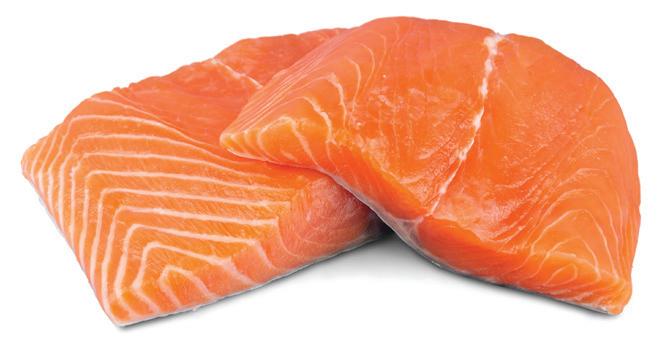
Because inflammation can originate in the gut, managing arthritis should involve a comprehensive approach that extends beyond joint-focused solutions. Avoiding processed foods, reducing synthetic additives and prioritizing nutrient-dense meals may help reduce overall inflammation and support long-term wellness.
For pet parents grappling with chronic health concerns like arthritis, Natanson encourages taking one step at a time, advising, “Start with gut health. You don’t need 20 supplements—just focus on whole foods, trust the process and pay attention to your dog’s cues. Simple, consistent changes can have profound results.” A holistic veterinarian or pet health coach can assist pet parents by customizing a diet plan based on their dog’s individual condition and tolerance.
Learn more about Dr. Ruth Roberts’ approach to holistic pet care and wellness at DrRuthRoberts.com.

To place a calendar/ongoing/classified event, email content to MsTracy@MidlandsNA.com. Entries must adhere to our guidelines and be submitted by July 10 (for August issue). Call ahead before attending events to avoid any cancellations or changes.
SATURDAYS JULY 5 & 19
Saturday Morning Strolls–9:30-10:30am. Start your summer mornings with a walk around the Charles R. Drew Wellness Center’s outdoor track every other Saturday. Free. 2101 Walker Solomon Way, Columbia. Info: 803545-3200.
SUNDAYS JULY 6, 13, 20 & 27
Sunday Jazz Brunch–Noon-3pm. Chayz Lounge invites you to enjoy an elevated brunch experience. Reservations required; must be 21 and older. There is no cover charge. 607 Meeting St, W Columbia. Info: 803-563-8375, ChayzLounge.com.
THURSDAY, JULY 10
Virtual Contemplative Prayer Service–7pm. Celtic Wisdom Center invites you to join us for some virtual contemplative community time. This is a nontraditional guided service featuring prayer, poetry and reflection. Donations appreciated. Info/registration/ Zoom link: Call Edwina at 303-803-6289.
SUNDAY, JULY 13
Reiki Bloom Circle–1-3pm. Peaceful Pause Healing offers a monthly gathering for reiki practitioners that want to stay rooted in their practice. We come together in community to share, ask questions, and offer reiki in a gentle and supportive space. Cost: $22. 7825 Broad River Rd, Ste 300, Irmo. Info: PeacefulPauseHealing.com.
TUESDAY, JULY 15
Reiki 101–6-7pm. Curious about reiki for personal healing or as part of your wellness practice? We will cover what reiki is, how it works, and how to begin. This is a safe space for questions, reflections and next steps. Free. Peaceful Pause Healing, 7825 Broad River Rd, Ste 300, Irmo. Info: PeacefulPauseHealing.com.
MONDAY, JULY 21 –
THURSDAY, JULY 31
Spring Summer Clearance–10am-5pm. Save 50-70% off discounted styles and colors. Foot Savi is your number one place for healthy feet. We are more than a shoe store; we are a medical boutique that meets all of your sole’s needs. 7001 St Andrews Rd, Columbia. Info: 803-781-1230.
THURSDAY, JULY 17
In-Person Celtic Service–7pm. Celtic Wisdom Center invites you to join their InPerson Celtic Service at Unitarian Universalist Church, 2701 Heywood St, Columbia. Donations appreciated. Info: Call Edwina at 303-803-6289.
MONDAY, JULY 21
Virtual Garden Club–6:30pm. Joyful Souls Nursery invites you to join their Seed to
Supper virtual garden club. Learn how to grow sustainably in your own space. Cost: $10. Info: JoyfulSoulsNursery.com.
THURSDAY, JULY 24
Improve Your Kidney Health–9-10:30am and 6-7:30pm. Original Origins Health and Wellness invites you to learn about all aspects of kidney health. This is a virtual class; must have Zoom to participate. Cost: $19. Info: Call 833-678-7229 or email OriginalOriginshw@ gmail.com to register.
THURSDAY, JULY 24
Plant and Pour–6:30-9pm. Tap into your creativity as you connect with nature. Theme is Container Fresh. Cost: $20. Blossom Plant and Produce, 1920 Blossom St, Columbia. Info: 803-888-6073.
Arboretum Open House–1-4pm. Every third Sunday. Come and enjoy a nature walk through the W. Gordon Belser Arboretum, a wildlife preserve in the heart of Columbia. Pets are not permitted. Pathways are natural and pass through hilly terrain. Restroom facilities are not available. Free admission. W. Gordon Belser Arboretum, 4080 Bloomwood Rd, Columbia. Info: Arboretu@mailbox. sc.edu.
Virtual Healthy Living Support Group –7pm. Every third Sunday. Virtual support group via Zoom. Uplift, support and encourage one another while making necessary changes for better health and wellness. Info/ register: Contact Ms. Tracy at 839-228-1158 or OriginalOriginshw@gmail.com.
Grief Support Group –1-2pm. Every second and fourth Monday. Connect with others that have experienced loss and the challenges that living with grief brings. Free. Leeza’s Care Connection, 201 St Andrews Rd, Columbia. Info: 803-888-7525, LeezasCareConnection.org.
Survivors of Suicide Loss (SOS) –7-8:30pm. Every first Tuesday of the month. This is a peer-led group, not a place for someone that is in crisis of suicide. If you are in crisis, call or text 988 or text TALK to 741741. Westminster Presbyterian Church, 1715 Broad River Rd, Columbia. Info: 803-622-1512, SOSColumbiaSC@gmail.com.
Early-Stage Dementia Support Group–12pm. Every third Thursday. In-person and virtual. This group is for caregivers and families adjusting to a new diagnosis of some form of dementia. Free. Leeza’s Care Connection, 201 St Andrews Rd, Columbia. Info: 803-888-7525, LeezasCareConnection.org.
FRIDAY, JULY 25
Friday Concert Series–5-9pm. Sit back, relax and enjoy the live music with Sean Mills & Friends. Free; cash bar and food trucks. Blossom Plant and Produce, 1920 Blossom St, Columbia.
SATURDAY, JULY 26
Church of the Wild–9am. Celtic Wisdom Center invites you to join us to spend some peaceful time in nature. This is a spirit-led exploration of the divine in nature. Please bring a blanket, journal and pen. Donations appreciated. Moore Park, 7473 Church St, Irmo. Info: Call Edwina at 303-803-6289.
Art W/ Coping of Loss–6:30-8pm. Every fourth Thursday. Dr. Delores Gulledge teaches to use art as medicine when dealing with loss and grief. No experience required. Free. Leeza’s Care Connection, 201 St Andrews Rd, Columbia. Info: 803-888-7525, LeezasCareConnection.org.
Palmetto Trivia–7-9pm. Every Thursday. Teams compete for prizes awarded to the top three finishers. Trivia takes place outside in pleasant weather and moves indoors to the Bierkeller hall during inclement conditions. Free parking is available in the deck on Canalside Street. The Bierkeller, 600 Canalside St, Ste 1009, Columbia. Info/cost: BierkellerColumbia.com.
Thursday Night Jazz Party–8-11pm. Every Thursday. The Aristocrat hosts a Thursday Night Jazz Party featuring various artists and musicians. Guest musicians welcome to join in. Free admission. The Aristocrat, 1001 Washington St, Columbia. Info: ExperienceColumbiaSC.com/event/jazzparty-at-the-aristocrat/68104.
Water Warriors–9-10am. Join Ms. Tracy for a revolutionary water fitness class as we fight for our health listening to energetic and upbeat music. This class is for most ages. You do not need to know how to swim to participate. There is a $5 drop-in fee for nonmembers and free for members. Charles R. Drew Wellness Center, 2101 Walker Solomon Way, Columbia. Info: 803-545-3200.
B.I.O.M.G.–10-10:40am. Every Saturday. Join The Village parent support group virtually. This support group is for all parents. Being a parent can be challenging. You have a village to help you maneuver through tough times. Free. Info: Contact Rashika “Ro” Davis at 803550-9837 or BlackIceomg@gmail.com.
Connecting you to the leaders in natural health care and green living in our community. To find out how you can be included in the Community Resource Guide, call 839-228-1158 or email MsTracy@MidlandsNA.com.
DOWDY RUDOLPH CHIROPRACTIC
LLC
Dr. Dowdy Rudolph, DC 1444 Barnwell St, Columbia 803-376-6293 • DowdyRudolphChiro.com

Dr. Gerald Rudolph, DC, focuses on finding the root cause of your problems and not just treating your pain. He utilizes digital X-rays to help diagnose problems, spinal adjustments to stimulate proper movement of spinal and extremity joints, active therapeutic movement exercises to correct movement disorders, and spinal decompression to help relieve numbness and tingling down your arms and legs. Dowdy Rudolph Chiropractic also offers a state-of-the-art full-body lounge hydromassage table that can help you feel more rejuvenated and relaxed. See ad, page 31.
SPRING RAIN HYDROTHERAPY
Linda Salyer
120 Kaminer Way Pkwy, Ste H, Columbia 803-361-2620 • LSalyer@ymail.com

All disease begins in the colon. Constipation; slow, sluggish bowel; gas and bloating? A colonic will help to rid you of these problems. Colonics promote good digestion, help speed metabolism, help lower cholesterol, and help relieve joint pain. Linda Salyer is IACN certified and a retired nurse. Saturday appointments available with an additional small convenience fee. See ad, page 19.
ABUNDANCE MANIFESTOR
Patricia Whyte
PatriciaWhyte.com

Do you often ask yourself, “Why am I not moving forward with all I am doing?” Does your life feel unmanageable or out of control? Is your physical space— and your mind—cluttered? Patricia is a global transformational leader and an expert in energy movement and manifesting. She is a certified Diamond Life Coach and Diamond certified in Feng Shui.
Feng Shui is the art of creating a harmonious and balanced environment by optimizing the flow of energy within a space. Many people feel stuck or overwhelmed in their careers, relationships or health. Clutter and disorganization are often part of the problem. Patricia offers a solution to help you move forward and live the life you deserve. Let her help you find your personal key to unlock your true potential and create a life filled with abundance, joy and boundless possibilities.
Juanita Ecker
518-941-9249
Juanita@TheShiftingSand.com
TheShiftingSand.com

Are you tired of turning to food to numb your feelings and finding comfort at the bottom of a snack bowl? Transform your relationship with food and stress. Stress eating isn’t about weakness—it’s about trapped emotions from past experiences that drive you to seek comfort in food. Juanita uses a gentle energy healing technique to identify and release emotional blocks, helping you break free from unhealthy patterns. Together, you’ll create lasting change—without shame or rigid rules. Life’s pressures don’t have to lead to the pantry. Your journey to overcoming stress eating starts here.
PEACEFUL PAUSE HEALING
Malai Roper
803-814-4001
Hello@PeacefulPauseHealing.com PeacefulPauseHealing.com

Malai is a holistic wellness practitioner specializing in Reiki, Ayurvedic wellness and Eastern massage. She creates personalized healing experiences that support women in reconnecting with their bodies, restoring balance and nurturing their inner peace. Her approach blends ancient wisdom with modern practices. She offers a safe, sacred space for women to pause, release and realign. Are you ready to prioritize yourself? Book your healing consultation today and take the first step toward your personalized wellness journey. In-person and virtual sessions are available. See ad, page 19.
PRIMERICA FINANCIAL ADVISOR
Hannah Tucker 803-427-8742
HannahTucker@Primerica.com
TherealHowMoneyWorks.com/us/ teamtucker

True wellness is not just physical—it includes financial peace of mind. Hannah Tucker helps individuals and families create stress-free financial plans that promote security, stability and long-term wealth. Through free consultations and financial plans, Hannah provides guidance on eliminating debt, protecting your income, growing your assets, and planning for a secure retirement—without financial strain. A solid financial foundation leads to a healthier, more balanced life. Let us create a plan that supports your overall well-being. Call Hannah to book your free consultation and unlock your path to wealth, peace and financial independence.
FOOT SAVI
7001 St Andrews Rd, Ste A Certified Board Pedorthist and Brace Specialist 803-781-1230 • FootSavi.com

With more than 30-plus years in the footcare/footwear industry, Sion Owen helps with a variety of issues, including gait analysis, foot assessments, custom orthotics, bracing and compression therapy, plantar fascia pain, neuropathy and fitting for therapeutic shoes for patients with diabetes, arthritis, painful bunions, callouses and hammer toes. Call to schedule an appointment! See ad, page 35.
Michael Woodland 1421 Calhoun St, Columbia 803-237-2536 • Michael@ESNTLHeadshots.com ESNTLHeadshots.com

Make a powerful first impression with ESNTL Headshots. ESNTL Headshots, the Midlands’ leader in professional photography, captures images that define your success. We specialize in corporate headshots and branding photography. Our corporate headshots provide polished, professional images for executives, teams and company profiles. Our branding photography provides dynamic shots for entrepreneurs, showcasing your personality and elevating your brand. We have options to bring the studio to you, delivering high-quality images that leave a lasting impact. Book today to level up your success.
ABOUT YOUR HEALTH INC
120 Kaminer Way Pkwy, Ste J, Columbia 803-798-8687 • AboutYourHealthSC.com

About Your Health Inc’s main focus is health education and health-enhancing services, including One-on-One Nutritional Counseling, Live/Dry Blood Cell Observation, Mild Hyperbaric Chamber, Ozone Therapies, Thermography, Aqua-chi Footbath, Far Infrared Sauna and more. They also carry hardto-find natural, organic, whole-food nutritional supplements and products. See ad, page 23.
Tracy R. Jacox • 833-678-7229
OriginalOriginshw@gmail.com
OriginalOriginshw.com

Ms. Tracy has over 30 years of experience in the medical field. Original Origins can assist you with maximizing your health and wellness holistically! Our wide range of services include health coach partnering, comprehensive health evaluations, comprehensive cooking experiences, and a comprehensive kitchen evaluation. Your health is your wealth!
Donna Mack
803-766-4913
PositiveProjectionsllc@gmail.com
PositiveProjectionsllc.com
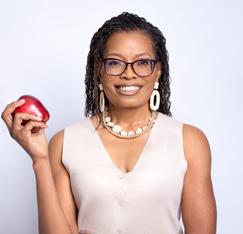
Donna Mack and her team bring over 30 years of combined experience in offering health and wellness classes. Our courses are designed to empower participants to live their healthiest and happiest lives as they age. We’ve seen firsthand how gaining greater understanding of health impacts and making simple changes in lifestyles can lead to real healing. We offer a signature Healthy Body Health class to provide you with an “owner’s manual” for your body, offering practical tools and a personalized plan to help you take charge of maintaining your health for a lifetime. Call to make an appointment today.
SPHINX PAW
3400 Two Notch Rd, Columbia 803-754-3922
SphinxPaw.com

Discover a haven for holistic well-being at Sphinx Paw. Sphinx Paw has been at the forefront of healing in the Columbia area since 2007. We offer a diverse selection of herbs, books, candles and incense to support natural detoxification, personal healing and spiritual growth. Embrace your wellness journey with our
thoughtfully chosen products and expert guidance. Our distinctive resources promote holistic self-care, natural detoxification, weight loss, personal healing, and spiritual growth throughout all phases of life. Sphinx Paw has everything you need to support you in a life of health excellence and well-being.
Dr. Rachel Hall

130 Suber Rd, Columbia 803-796-1702 • DrRachelHall.com reception@drrachelhall.com Find us on Facebook for great health tips. Integrative/Holistic medicine consults for anyone wanting to approach their health more naturally. Dr. Rachel Hall is board certified in both family medicine and integrative holistic medicine. Together we will focus on finding the root of the problem, not just treating symptoms. Call today for a consult if you are looking to achieve balance. In-house diagnostic labs and therapies. See ad, page 21.
JOY LEE CONNOR
Healing Minster at Springhill AtONEment Center 803-447-6499
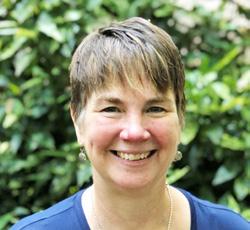
Joy has more than 30 years of experience in energy and bodywork. She teaches Reiki, Touch for Health, Meditation, Yoga, Ayurveda and A Course in Miracles. Joy welcomes and sees clients who are ready to shed guilt and limitations in favor of forgiveness and freedom. One hundred acres of trees surround this pristine location for healing at Springhill AtONEment Center. Nature walks and fireside gatherings available. Contact Joy at 803-447-6499.
JAN SHAW PERSONAL TRAINING & MASSAGE (MAS1935) 806 12th St, West Columbia 803-360-7895 • JanShawHealth.com

Jan Shaw has many years of experience in exercise physiology and massage. She specializes in the John F. Barnes method of Myofascial Release Therapy; holds an M.S. in Exercise Science; has worked in rehab medicine for 10 years re-training patients with a myriad of physical injuries; and is skilled in MFR 1, 2, Unwinding, SES and Cervicothoracic. Whatever your needs, Shaw has the education and experience to help you.
GARNER’S NATURAL LIFE
4840 Forest Dr, Ste 15-A, Columbia 803-454-7700
5166 Sunset Blvd, Ste C, Lexington 803-973-3001
GarnersNaturalLife.com

Garners Natural Life is a locally and family-owned natural health store that has been a staple in the community for decades. Improve your health with the purest, most innovative high-quality natural products, including vitamins, herbal supplements and aromatherapy. Their newest product, GLP-1 Pro, is a probiotic blend that supports healthy weight management and helps curb food cravings. They also offer a full line of chemical-free shampoos, conditioners and natural soaps. Take your health somewhere it’s never been—visit one of their local locations today. See ad, back page.
PROSPER AND THRIVE PELVIC HEALTH AND WELLNESS
Dr. Kelsey Stegall 120 Sparkleberry Crossing Rd, Columbia 803-250-1836
Kelsey@ProsperAndThrive.co ProsperAndThrive.co

Dr. Kelsey Stegall is a Board-Certified Clinical Specialist in Women’s Health Physical Therapy. Pelvic floor therapy strengthens muscles supporting the bladder, bowels and reproductive organs in men and women. Dr. Kelsey assists men and women in improving bladder and bowel control, as well as enhancing sexual function. Her therapy techniques help women improve recovery after childbirth and gynecological procedures, and she also assists men in improving recovery after prostate surgery and men with pelvic pain and dysfunction. You deserve a life that is leakage- and pain-free during exercise and intimacy. Book a consultation with Dr. Kelsey to discuss how you can experience a patient-centered, full-body approach to true wellness and reclaim your life.
LUVEVA AESTHETICS SPA
Eva Rigney, RN Certified Esthetician 630-17 Promenade Pl, Ste 401, Columbia LuvevaSpa.GlossGenius.com

Eva Rigney is an Aesthetic Nurse and an Army Veteran. She has been in the medical field for more than 20 years and focuses on her lifelong passion of skin care. She in-
corporates updated and newest innovations in esthetics, such as permanent makeup (PMU), including 3D areola, Botox and more. She enjoys providing facial and body treatments, along with advanced techniques. She shares her knowledge on skin care, and assists with recommendations of the Luveva skin care line. “My goal is to help everyone achieve revitalized healthy skin,” she says. See ad, page 27.
CELTIC WISDOM CENTER
Edwina@CelticWisdomCenter.com CelticWisdomCenter.com

The Celtic Wisdom Center is an eco-spiritual nonprofit community that embraces Celtic worship, contemplative practices, and spiritual direction. Through unique offerings like wander walks and contemplative nature experiences, we invite individuals to connect with the divine through nature and engage in Earth-centered practices that foster spiritual community. At the Celtic Wisdom Center, the timeless wisdom of the Celtic spiritual heritage helps transform the ordinary into the sacred. This is a holy and safe space to explore your spiritual path, deepen your connection with the divine, care for the Earth, and find a supportive community dedicated to holistic living. All are welcome.
SEW AND HEAL
Jacquelyn Odom
7825 Broad River Rd, Ste 200, Irmo 828-590-1228
SewAndHeal@gmail.com
SewAndHeal.My.Canva.Site

Sew and Heal is a nonprofit organization founded by Jaqueline, inspired by her journey of using sewing as an outlet to overcome the challenges of PTSD, anxiety and depression stemming from her military trauma. The organization empowers women and children to find healing and creativity through the art of sewing, turning pain into purpose. Sew and Heal provides a safe and supportive space for healing through sewing. Their mission is to foster emotional well-being, creativity and connection.
Private & Corporate Yoga Teacher Hello@CateKeys.com CateKeys.com

Cate is a certified yoga teacher who offers private and corporate yoga sessions both virtually and in person. After experiencing the profound impact of yoga during the postpartum period, Cate felt called to share its deeper, more transformative aspects with others. What began as a physical practice evolved into a holistic journey that helped her reconnect with her body, find mental clarity, and embrace a more authentic life. Today, she brings that same intentional approach to her work to create personalized experiences that meet each client where they are. Cate’s offerings are rooted in compassion and clarity, supporting individuals and teams alike in finding balance, focus and well-being. Ready to explore how yoga and energy healing can support you or your team? Book a free consultation with Cate today to get started.
All classes are free and taught by certified instructors. Classes will not be held during inclement weather. Participants should bring a yoga mat, towel and water.
WEDNESDAYS JULY 9, 16, 23 & 30
Yoga at the Park–9am. Elmwood Roy Lynch Park, 900 Abbeville St, Columbia. Info: 803545-3100.
Yoga at Rosewood–6pm. Rosewood Market, 2803 Rosewood Dr, Columbia. Info: 803-765-1083.
FRIDAYS JULY 11, 18 & 25
Yoga at Saluda Riverwalk–9am. We will meet in the grassy area by the tables, below the parking lot. Saluda Riverwalk, 650 Candi Ln, Columbia. Info: 803-545-3100.
SUNDAYS JULY 6, 13, 20 & 27
Yoga at Rosewood–2pm. Rosewood Market, 2803 Rosewood Dr, Columbia. Info: 803-765-1083.
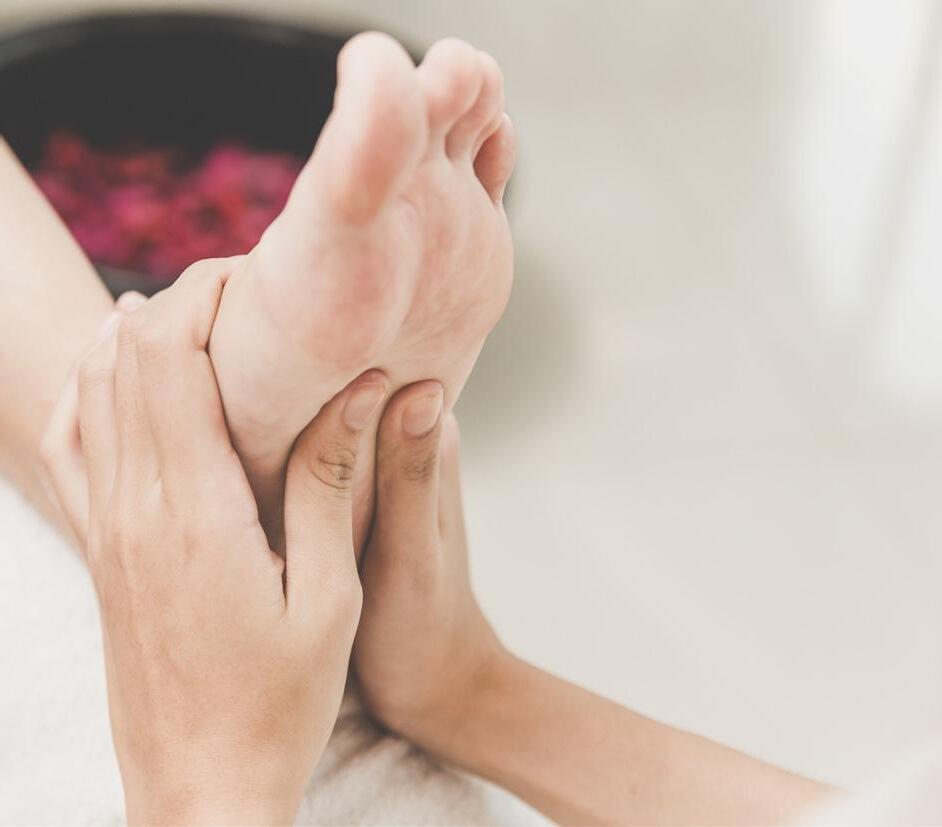



The only way to have a good life is to stop trying to have a good life and just live.
—Alan Watts
Make sure to let our advertisers know you found them in

